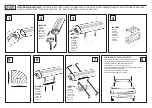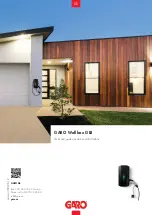
2-34
NOTICE:
Damage to your transmission caused by shifting
out of PARK (P) or NEUTRAL (N) with the
engine racing isn’t covered by your warranty.
AUTOMATIC OVERDRIVE (D): This position is for
normal driving. If you need more power for passing,
and you’re:
D Going less than about 35 mph (55 km/h), push your
accelerator pedal about halfway down.
D Going about 35 mph (55 km/h) or more, push the
accelerator all the way down.
You’ll shift down to the next gear and have more power.
THIRD (3): This position is also used for normal
driving, however, it offers more power and lower fuel
economy than AUTOMATIC OVERDRIVE (D).
Here are some times you might choose THIRD (3)
instead of AUTOMATIC OVERDRIVE (D):
D When driving on hilly, winding roads.
D When towing a trailer, so there is less shifting
between gears.
D When going down a steep hill.
SECOND (2): This position gives you more power but
lower fuel economy. You can use SECOND (2) on hills.
It can help control your speed as you go down steep
mountain roads, but then you would also want to use
your brakes off and on.
NOTICE:
Don’t drive in SECOND (2) for more than
25 miles (40 km), or at speeds over 55 mph
(90 km/h), or you can damage your transmission.
Use AUTOMATIC OVERDRIVE (D) or
THIRD (3) as much as possible.
Don’t shift into SECOND (2) unless you are going
slower than 65 mph (105 km/h), or you can
damage your engine.
















































